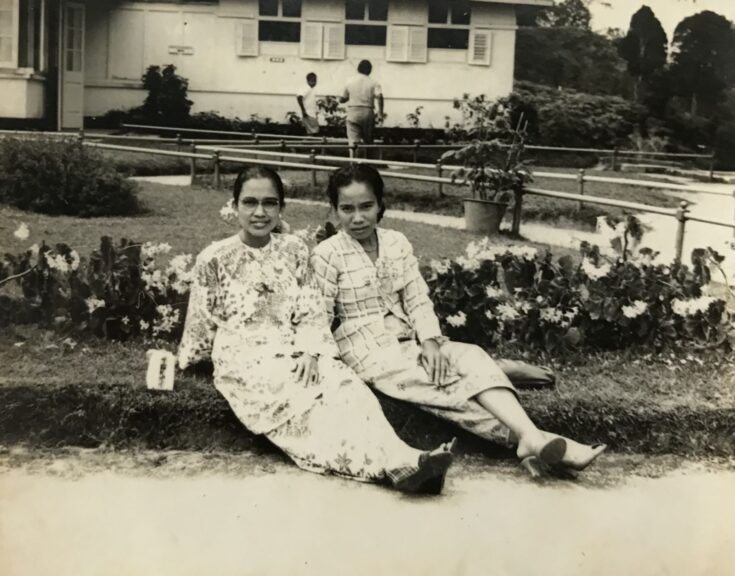
Azura Lovisa Wännman is a Swedish-Malaysian fashion designer who incorporates her mixed heritage in her creations. Since 2018, she has been particularly inspired by her Southeast Asian culture.
But to incorporate her Swedish background, Lovisa tries to use a Nordic approach to her designs, she states on her own website:
“Southeast Asian aesthetic traditions are interpreted via a Scandinavian design approach, crafting a contemporary mythology people can inhabit.”
Challenge the norm
Besides being a ‘slow fashion’ brand who embodies sustainability wherever possible, Lovisa’s label aims to ‘decentre Eurocentric aesthetics,’ she says in an interview with Tatler Asia.
She does so by implementing transcultural narratives to her label, and by paying tributes to her own Malaysian heritage discovery journey after growing up in Sweden.

Azura learned about the culture through her mother- which all spiked her focus on the country’s folklore, history, mythology and their postcolonial reality.
Ancient traditions and family spirit
Her designs are usually combined with gold-plated earrings and brooches, taking shape of common Malay spices like chili, garlic cloves or the star anise. The jewelry is also a reference to ancient Malay customs, such as the folk magic practice of ‘susuk,’ where gold needles and diamond shards are embedded beneath the skin.
But Lovisa’s main influence is actually her very own family, the interview reveals.

For instance, some of her creations are inspired by natural elements, and pays tribute to her great-grandfather who was free-diving for pearls in the 1930s. It is through old photo archives that she finds this inspiration.
Do not be ashamed
Finishing the Tatler interview, she brings attention to historical and spiritual values, and stresses how they deserve not to be overlooked, despite how controversial they might seem.
“Malaysia’s history of folk magic practices has value and depth, and links realities with the spiritual and supernatural qualities that give our culture color and meaning,” she says.
“I don’t think that history deserves to be overlooked and it is nothing to be embarrassed about,” Lovisa concludes.
You can read the full interview with Azura Lovisa here.
